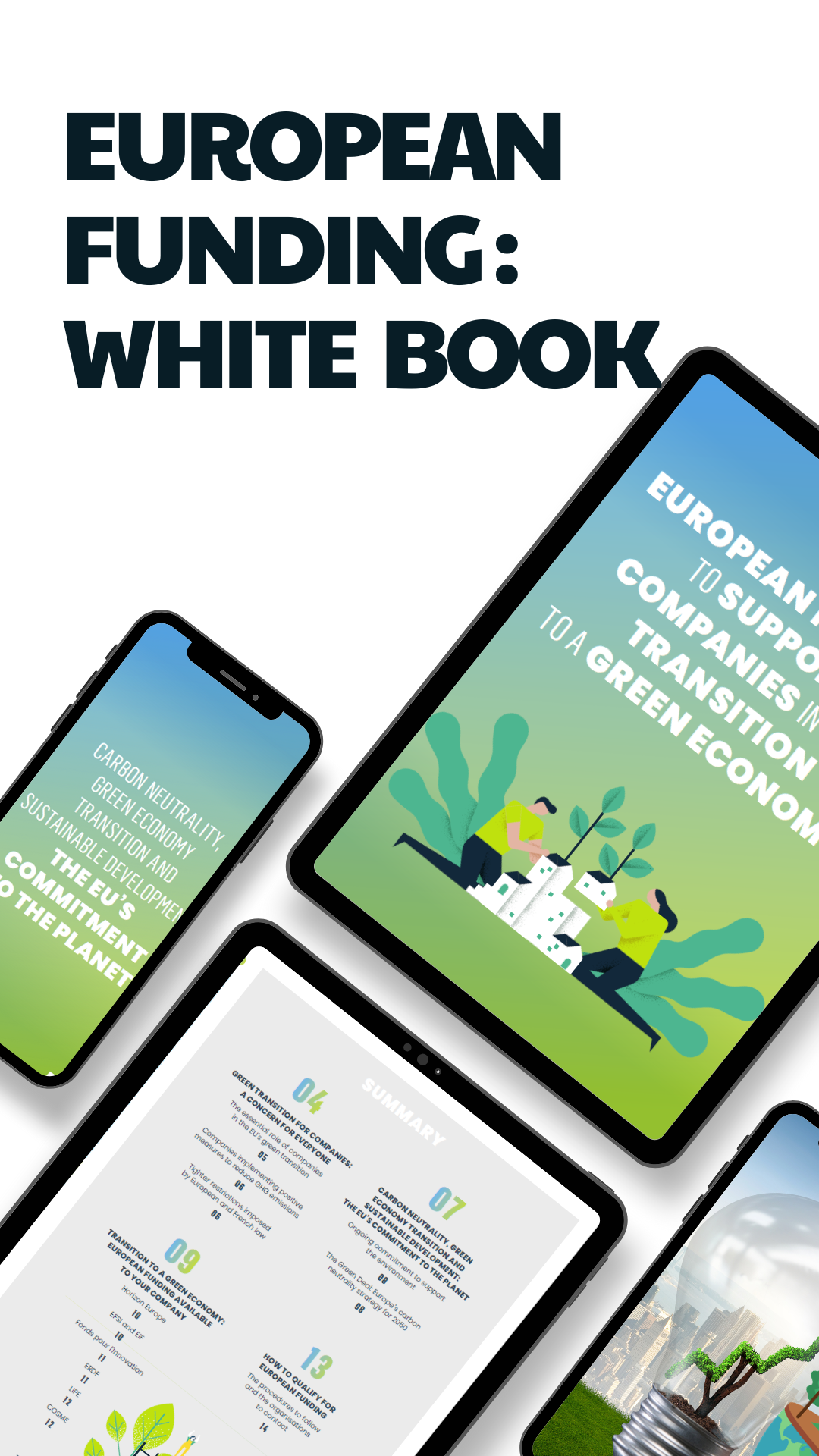Decarbonising industry isn’t just for the industry leaders: are also involved. But not everyone has yet fully engaged. What are the main barriers to decarbonisation among MSMEs? And how can they be overcome?
Key Numbers
According to a barometer conducted by Argos Wityn and BCG, just 11% of European MSMEs have implemented a structured decarbonisation plan which, starting from a full inventory of their GHG emissions, includes the delivery and implementation of a road map and the re-allocation of investments. In France, a study by Bpifrance Le Lab gave a higher percentage, with 72% of those interviewed declaring they had reduced their carbon emissions over the course of the last five years, however the criteria are not the same. Indeed, while the decarbonisation of industrial MSMEs targets value chains (the purchase of raw materials and goods etc.), processes, products and support activities as well as the use of final products, company buildings, freight and mobility, the majority of companies interviewed in the study cited automatic lighting, waste sorting, the purchase of more energy-efficient equipment or a reduction in paper and plastic consumption as their main initiatives.
The main barriers to decarbonisation among MSMEs
Currently, investments made by MSMEs relating to decarbonisation are primarily driven by regulation, energy prices and customer demand. Unsurprisingly, the main barriers to decarbonisation are cost, time, lack of internal resources and, more widely, the absence of a clear vision from the supporting ecosystem. Also cited is the fact that standards are at times contradictory (for example, safety standards vs. climate standards). To help navigate all this, companies need strong support, expertise and financing.
What support is available ?
With the France 2030 investment plan in mind, the country’s Environment and Energy Management Agency (ADEME) has already launched numerous calls for projects on decarbonisation, but a many of these rely on projects with high minimum investment levels (e.g.: €3M for the DecarbInd call, and €50M for the DecarbInd+ call). Additionally, the agency has partnered with Bpifrance to put forward a complete programme based on the “ACT Pas à Pas” (Step by Step) which allows a company to identify the main points of action and to set its decarbonisation pathways, taking account of its development challenges, and receiving support in the first stages of implementation. Aimed at MSME directors who are committed to implementing a “realistic and robust” low carbon strategy, the “Accélérateur Décarbonation” (Decarbonisation accelerator) helps with the low carbon transition, establishing a strategy and transition plan, grasping new development opportunities, mobilising the teams and engaging with partners and investors throughout the initiative. Beyond decarbonisation of the processes, the value chain, the product and the support activities, it also tackles other key points such as strategy, added value and financing, while also driving and managing change.
In parallel, last July, the Pacte PME (SME Pact) association launched the Alliance Pacte PME (SME Pact Alliance) for the decarbonisation of the economy and of SMEs. This association has been championing SME development since 2010, by fostering interaction between large companies, mid-sized enterprises and trade organisations. The Alliance aims to “significantly accelerate the decarbonisation of thousands of French SMEs by offering them a complete route to decarbonisation, from carbon accounting to the implementation of technological solutions that allow them to act effectively to reduce their emissions” (see box). The idea is to bring on board small or medium-sized companies, mainly from the manufacturing and construction industries, seeking to achieve decarbonisation, energy transition and sustainable growth. No fewer than 3,400 SMEs should be supported by 2025, thanks to a collective arrangement put in place and steered by the large companies already involved in the initiative: Aéroports de Paris SA, Bouygues Construction, Edf, Engie, Sanofi, Schneider Electric and Thalès. The first participating SMEs should start their carbon accounting this autumn, and those which have already done so will be supported through to selecting the investments to be made to implement the technological solutions for re-balancing their energy mix.
The SME Pact Alliance in brief
The programme proposed by the SME Pact gives companies access to:
– a clear, simplified route to decarbonisation, delivering savings, energy independence and reduced environmental impact plus greater resilience and competitiveness.
– a one-stop-shop via the SME Pact which brings together a panel of operators offering services at preferential rates, along with sources of finance,
– a peer exchange space for disseminating, sharing and exchanging good practices, pilot projects and common issues & challenges,
– decarbonisation resources and expertise from major companies and ecosystem heavyweights: information and technical support for implementing energy transition plans, identifying technological solutions, sharing experiences etc.
It’s also worth noting that the recent edition of Pollutec (from 10 to 13 October) was packed full of solutions dedicated to decarbonisation, including energy efficiency, process electrification, renewable or low-carbon hydrogen, waste heat recovery, self-consumption, decarbonising fume and smoke, CO2 capture or the reduction and waste recovery. Among the innovations unveiled by the exhibitors we could cite the compact, modular and connected system for the recovery and storage of heat energy between 0° and 100°C proposed by the Pollutec Innovation Awards winner, Grims Energie; the AI-powered cold system controller from Purecontrol and the Energy Transition Compass tool targeted at SMEs to support their energy transition, presented by the Italian company Bluefoundation Srl.

The 3 winners of the Pollutec Innovation Awards 2023
Read more:
– Study “Mid-market climate transition barometer – High awareness but a critical need for more structured actions”, Argos Wityn and BCG, 2023. A survey of 700 directors in 6 European countries: Germany, Belgium, France, Italy, Luxembourg and the Netherlands
Learn more : Why eco-responsibility matters in business and how to achieve it ?




